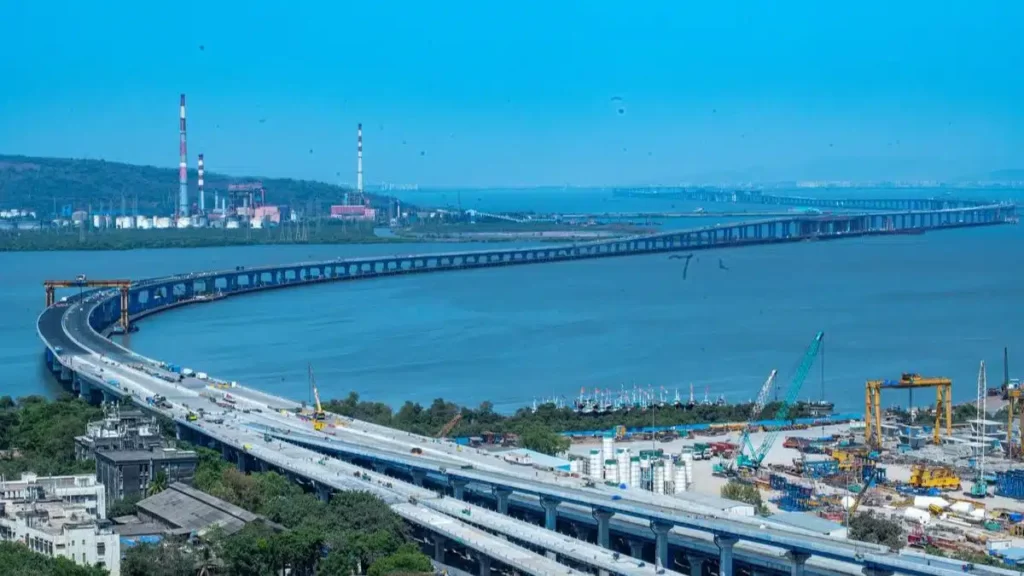Introduction
The advent of a new age of connection in the vibrant landscape of Mumbai has been marked with the opening of Atal Setu. More than just a marvel of engineering, this bridge is a lifeline, seamlessly connecting South Mumbai to Navi Mumbai. The beginning of Atal Setu, named after former Prime Minister Atal Bihari Vajpayee, has turned what was once a two-hour trial into a quick 15 to 20 minute journey that conveys the essence of development and power of contemporary infrastructure.
The Inaugural Leap
When Prime Minister Narendra Modi unveiled the Mumbai Trans-harbour link, now the Atal Bihari Vajpayee Sewari-Nhava Sheva Atal Setu, it was a testament to India’s infrastructural ambitions. Spanning 21.8 kilometers and costing over Rs 17,840 crore, the Atal Setu represents a significant milestone in infrastructure, a sector that has seen revolutionary changes thanks to Building Information Modeling (BIM) and its impact on architectural and construction practices.
Design and Construction: A Testament to Perseverance
The creation of Atal Setu was a challenge of grand proportions. Its construction over the Arabian Sea symbolizes India’s capability to overcome geographical and engineering challenges, much like the role of BIM Managers in modern construction projects, ensuring precision and efficiency from conception to completion.
Economic Growth and Connectivity of Atal Setu
Atal Setu is a beacon of economic potential, promising to usher in a wave of development that will reshape the socio-economic fabric of the region. By facilitating smoother travel, it enables growth, much like how BIM is transforming urban planning and infrastructure.

Image Credit: Business UpTurn
Sustainable Development: A Core Objective of Atal Setu
The bridge stands as a stepping stone towards sustainable infrastructure, reflecting India’s dedication to green growth. This aligns with the growing trend of eco-friendly living and sustainable building practices that are crucial for the future.
Bridging Aspirations of Atal Setu
The Setu is more than a feat of engineering; it’s a symbol of a nation’s aspirations, reflecting the dream of a connected and prosperous future for all. It’s a clear indicator that, with the right BIM strategies, any construction project can turn into a landmark of national pride.
Frequently Asked Questions
Question: What role does BIM play in the construction of large-scale infrastructure like the Atal Setu?
Answer: Building Information Modeling (BIM) is pivotal in modern construction projects. It enhances precision, boosts efficiency, and ensures that complex structures like the Atal Setu are built to last. For an in-depth understanding of BIM’s benefits, explore how it is transforming the construction landscape.
Question: How does the Atal Setu impact the economy and connectivity?
Answer: By reducing travel time, the Setu fosters economic growth, enhances connectivity, and stimulates regional development. The bridge serves as a catalyst for new opportunities, much like how BIM streamlines MEP engineering.
Question: Can infrastructure like the Atal Setu contribute to sustainable development?
Answer: Yes, infrastructures such as the Setu is designed with sustainability in mind. The integration of BIM technology aids in creating eco-friendly designs and promotes sustainable development practices. Learn more about the impact of BIM on urban planning and sustainability.
Question: What future developments can we expect in infrastructure technology?
Answer: The future is bright with developments like BIM and sustainable materials, which are set to revolutionize infrastructure technology. Stay informed on the latest BIM tools and technologies that are shaping the industry.
Conclusion
The Atal Setu is not just an infrastructural project; it’s a bridge to the future, embodying the harmony between aspiration and actualization, dreams and reality. As India strides forward, the Atal Setu stands as a testament to this progress, promising a future where distances cease to hinder growth and prosperity.
For more insights into the world of engineering and construction, delve into the Pinnacle IIT Blogs, where innovation meets practicality.
Discover more about how we’re shaping the future of infrastructure and design at Pinnacle IIT.

